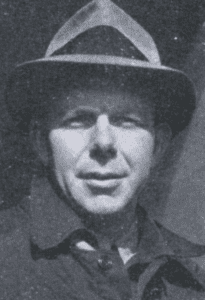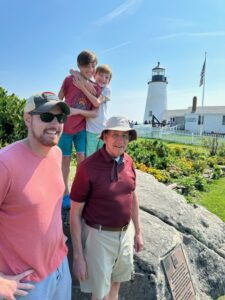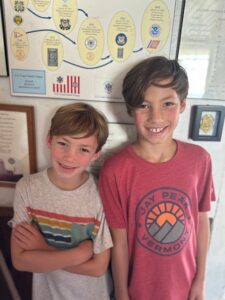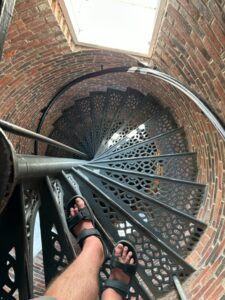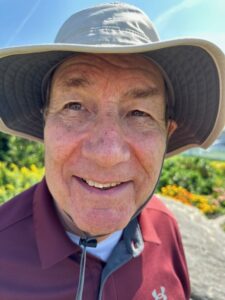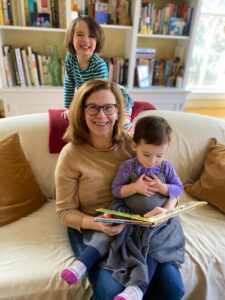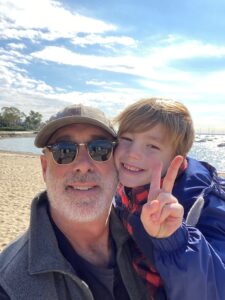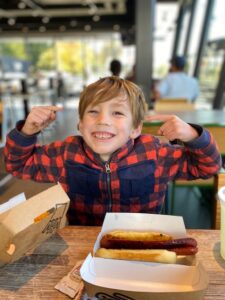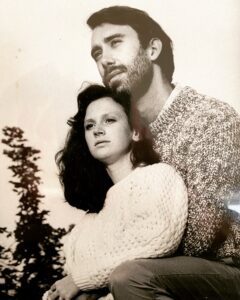On August 14, 1936, rowing crews from six countries competed for the gold medal at the Olympic games in Berlin, Germany. Adolf Hitler was in the stands, cheering on his…
On August 14, 1936, rowing crews from six countries competed for the gold medal at the Olympic games in Berlin, Germany.
Adolf Hitler was in the stands, cheering on his team along with thousands crowding the stands at the Grunau Regatta Course. There were eight rowers and one coxswain per boat on the 2000-meter race, one oar per rower, with a photo finish that became legend as the American team took home the gold. The story of the team’s journey from their humble origins in Washington state to becoming heroes is brilliantly told by Daniel James Brown in his classic book, The Boys in the Boat. A move adaptation directed by George Clooney is coming out in December 2023.
But there is another story here that’s important to tell. One that spans generations that lived before 1936, and after, and will extend into the future.
The nine American rowers in the boat that day had an extra teammate, an alternate ready to replace anyone injured or ill prior to competition. His name was Delos “Dutch” Schoch (according to family lore, at one point when Dutch was filming the team, he was standing in the way of Hitler’s view and was summarily asked to move; when I learned this it made me wish a lot more men had stood in Hitler’s way in 1936).
After serving in the navy in WWII, Dutch became head rowing Coach at Princeton. The love of rowing was passed on to Dutch’s son, Fred Schoch, who’s played a leading role in building one of the great sports competitions in the world today, the Head of the Charles Regatta held yearly in Cambridge, Massachusetts.
I’m talking with lots of grandpas these days as I conduct research for my book, The Good Grandpa Project, and when I found out Fred is a grandpa, I knew I had to meet up with him over coffee.
I wanted to know how his upbringing has guided him through life, and what lessons he’s learned. And I sought to ask him the question I’m asking of all grandpas: what is the #1 piece of wisdom that will help today’s kids become the next great generation?
The following are some highlights from our conversation:
How did your upbringing shape who you’ve become?
My dad was this heroic Hemingwayesque figure. Big as I am, burly. A revered coach. He was a man of few words, but when he spoke you really paid attention. I grew up in this kind of storybook town of Princeton [New Jersey], back in the 50s. Princeton was a sleepy little town of probably 30,000 people back then. But we used to go to the basketball games and see Bill Bradley play. I think I was shaped by not only my father, but the impressive young oarsmen at Princeton. As I got bigger, I got to go on trips with them and the kids would playfully throw me up in the luggage rack of the charter bus when we went to New Haven. I started as a coxswain when I was 10 years old and even steered one of my father’s crews in the 1960 Olympic Trials in Syracuse, New York. So, I grew up around them and could be a part of the workouts. And later, when I got big enough, I started rowing with them.
What do you remember about your dad?
One of the fondest memories I have of my dad was on wintery Sunday afternoons; we had an open Willy’s jeep, and we lived on 15 acres with lots of oak trees and we burned a fire all winter in our prerevolutionary farmhouse. We’d go deep back into the woods, and we’d cut fallen trees. We didn’t have to say a lot. But I was the splitter and he was running the heavy Sears and Roebuck chainsaw. And so, I learned how to split logs and actually wrote a poem to my son, Willard, about that experience, the father/son relationship. And I gave it to him for his birthday probably 10 years ago. Your relationship with your kids is so important. I took my youngest son to the airport recently and he said, “Dad, I’m really glad you gave me a ride because it’s more than that. It’s symbolic. I want you to know how important you are and how much I want you to be in my life.” Wow.
Did you have a chance to know your grandfathers?
Both of my grandfathers died in their 50s before I was born, and my dad died of a coronary at 56. There is a big hole in my history in terms of knowing my grandparents, and I want to pass on as much as I can to my grandchildren. You begin to think about the uncertainty of our own lives when you hit 70. As the saying goes, “The lights can go out at any time.” Having time together is important. That’s why I’ve just made a commitment to retire and start consulting part time.
When you think of a creating a lasting legacy for your grandkids, what things come to mind?
I think it’s important to pass on the basic building blocks of being a good human being and being honest. A tireless work ethic was something both my parents passed on to me. As a late bloomer I had struggles, you know, but I stuck with it and came out the other side academically, and even started my career as a secondary school English teacher. It seemed like it was never going to happen, but it did. While I didn’t know my grandfathers, I’m sure they had to work hard for what they achieved. I think a sense of humility is so important in life and to respect other people. I want to make sure they’re grounded. And I think that’s something that I can pass on that I received from my father.
What lessons are there in sports for our grandkids?
Rowing has given me so much because there’s no hiding in this grueling team sport. There’s no superstars. It’s like the total teamwork demonstrated by The Boys in the Boat. I have a recent example. An aspiring rower applying to colleges told me he had achieved a certain score on an indoor rowing machine used to test fitness, and I found out later he lied to me. It’s B.S. I mean, he lied to me but he’s lying to himself. He’s afraid. I believe in redemption, but he’s going to have to turn it around. A friend of mine is a coach at Marietta College who’s a philosophy major and he talks about an analogy of a lamp; the shadow outside of the lamp shade is where you have to go as an athlete, into that pain cave. When you’re competing it can really, really hurt. You have to you be able to peer into that darkness and not be afraid to go there. You have to prepare yourself mentally to embrace the unknown. It’s true in all sports. Some people take shortcuts. And some people refuse to take shortcuts — the successful ones. It’s about loyalty to your teammates and being honest with them and yourself.
What’s the #1 thing?
In life, you’re going to have so many ups and downs. Trust who you are and that you’re going to figure it out. It’s going to be okay. Just be resilient and keep marching forward. In grad school, I kept a piece of paper taped to my bulletin board with a saying from the German poet Goethe that read “work and despair not.” That pithy aphorism kept me going many late nights. I hope my grandchildren will absorb some of my wisdom and benefit from my experience.
My thoughts on Fred’s story: It brings to mind the idea that all of us are living history. From one generation to the next there is a bond that outlasts time, with evergreen lessons we can build on and shape into our own, and give again. And sometimes it’s the really simple things, like cutting wood in a forest—without talking—that says how much we love our children.
What are activities that you do with your grandkids that they will remember? Please post your comments to join the conversation.

